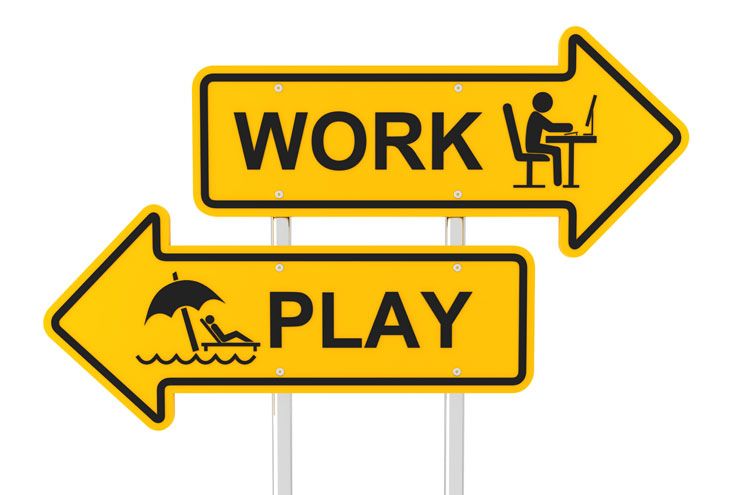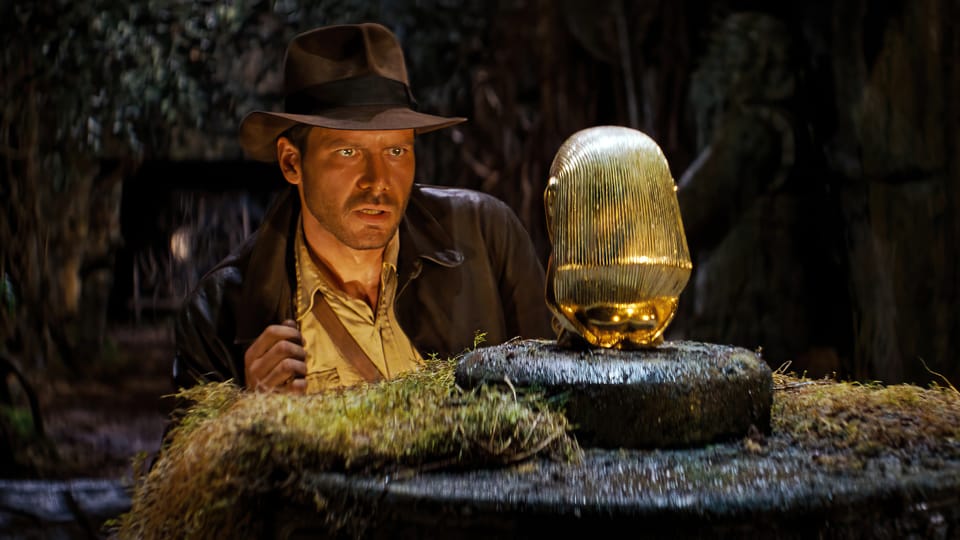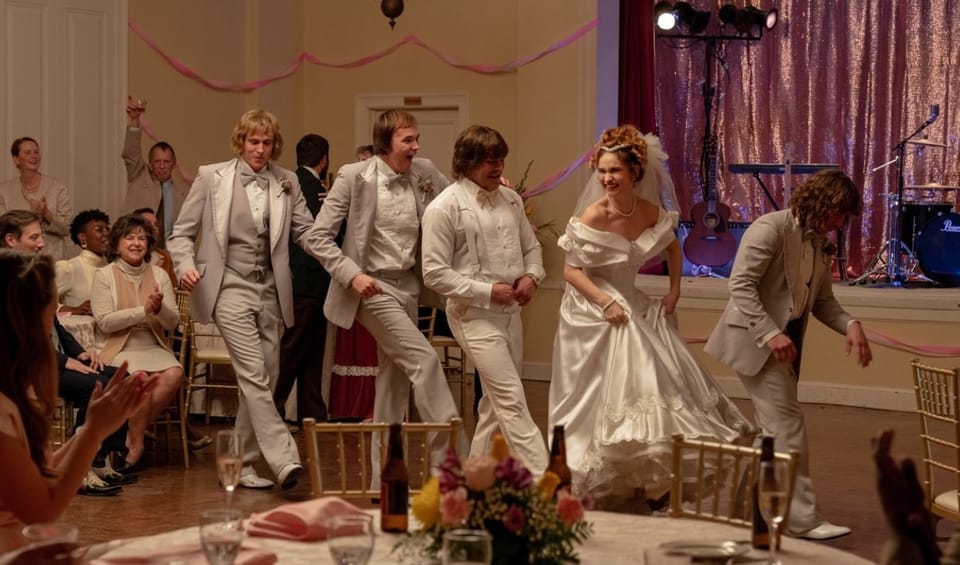Define The Character Early
We are still on character and dialogue this month, but today it's just character. And specifically, character in the first ten pages. We all know how crucial the opening of our screenplay is. We hear it again and again.

The Story and Plot Weekly Email is published every Tuesday morning. Don't miss another one.
The First Ten Pages
We are still on character and dialogue this month, but today it's just character.
And specifically, character in the first ten pages.
We all know how crucial the opening of our screenplay is. We hear it again and again. But do we fully understand and appreciate it?
Because we still see plenty of opening scenes dramatize someone's alarm going off and the protagonist waking up.
And starting their day.
That's how they open the movie.
Someone waking up.
Groggy.
And slowly getting up.
To start their day.
Please don't do that.
Anyway.
I have written about the ordinary world before and how "ordinary" does not mean boring, but today focuses on the character within that ordinary world.
I am going to give you three primary elements to think about.
There are more. So much more. Including what we have talked about in just the previous few emails.
But "five minutes a week" limits our scope, so we will talk about just three primary things.
From a story perspective, we want the first ten pages to define the character for the audience.
Story is transformation. And if we dramatize this, we must know who they are at the beginning. And because we only have so much time, we need to do it as efficiently as possible.
But the ordinary world is a different beast because there is so much temptation to lean into "set-up" mode and assume the reader will be patient with us.
This is a bad assumption.
So instead, I want you to think about all of this in terms of action.
Give your characters a want they seek in the first ten pages.
Don't forget stakes in the beginning. This is a huge mistake writers make. They think the ordinary world has no stakes. This is really limiting yourself.
The rules of drama still apply:
- Someone wants something.
- They are having trouble getting it.
- Something will happen if they fail.
If they are hosting a party, show them actively trying to keep the party from falling apart. If they are a teacher, give them a crisis to solve. If they're home, create stakes that affect their behavior.
The stakes will not be what they will be, but they still must be there.
With that said --
Give Your Character Choices
We define character by 1) What the character wants, and 2) What they are willing to get it.
How do we illustrate this? Through choices.
Dialogue is a choice; sometimes, what they say can be enough. But more often, a character presented with a moral choice, or split-second decisions will give us much more.
In MOONLIGHT, Mahershala Ali's character Juan follows Kevin to the house. That tells us who he is. Steve Rogers jumps on a grenade. Maverick chooses to take the plane beyond its limits in TOP GUN: MAVERICK. Notice all three examples are seen through action. Objective, obstacles, and stakes,
The Defining Trio: Home/Work/Play
Home, work and play are the most important areas of someone's life. See if you can dramatize moments in each one (the guideline of action and wants still apply. Ordinary does not mean boring.)
Do not force this. Not every story is going to allow it. One or two places are fine. You can hint at them if necessary or save one for a reveal later on.
In the buddy movie THE HEAT, we see Sandra Bullock's character at home and work and that there is no play, but the film holds off showing Melissa McCarthy's home and play until much later in the movie.
What are their expectations?
This is HUGE, and I can't encourage this enough. The more we understand what a character expects to happen in their life, and the more they care about that expectation, the more disruptive it is when the inciting incident comes crashing in.
This is one of those force-multiplier tricks.
In LEGALLY BLONDE, she expects a proposal but gets dumped. In DUNE, Paul expects to be the leader of his House one day, only to have the House of Atreides destroyed. In MANCHESTER BY THE SEA, Lee Chandler wants to be left alone when he gets a call and learns he now has legal custody of his nephew.
Expecting one thing and getting something different makes the "something different" feel worse and much more disruptive.
Which is what we want. Most of the time we are going to destroy the person and make them something new. This helps.
Our job in the opening pages.
I don't want to talk about the opening of a screenplay without discussing what I think is one of your most crucial objectives here:
To win the confidence of the reader.
You must display enough skill, confidence, and voice that they believe you know what you're doing.
You do this in a hundred little ways. Quickly defining a character is one of them. A compelling opening is needed. Decisiveness. Total clarity of intent. Make them feel something. Make them care.
The longer you go while maintaining their confidence, the more the reader will trust that you are making choices rather than mistakes.
In short, you will get a much more open and forgiving read.
Project Updates
THE HAUNTING OF THE QUEEN MARY.
I still have not seen the new trailer. It opens on August 18th. Again, this is not my screenplay anymore. I only got story credit, but the producer is a friend, and I hope people like it for his sake. I think there will be an audience for it. It's beautifully shot.
DADDY'S GIRL
As expected, the financiers exercised the option and now own the screenplay. It is bittersweet. It does mean the chances of them making the film are increased, but if they don't... it doesn't even collect dust anymore. They have their director and were about to go out to cast. But that's not happening for a while. Why? See section above.
One Last Thing
Consider Mastering Structure
Tired of getting bogged down in Act 2 of your screenplay? What if I told you that should be the fun part? I can show you how.
Is indecisiveness killing you? I got you on that, too.
This course will show you how making crucial decisions early on makes each subsequent story decision easier and easier.
Structure is not limiting. It's the opposite. It's liberating. It's why I love it so much.
I put so much of what I have learned over 27 years of writing professionally and 21 years of teaching it into this online course.
Click here to learn more about Mastering Structure.
Why wait? Get to writing better screenplays right now.
That's it for this week!
I think I got one more character entry in me for July. I hope you do too.
In solidarity,
Tom Vaughan
The Story and Plot Weekly Email is published every Tuesday morning. Don't miss another one.
When you're ready, these are ways I can help you:
WORK WITH ME 1:1
1-on-1 Coaching | Screenplay Consultation
TAKE A COURSE
Mastering Structure | Idea To Outline




